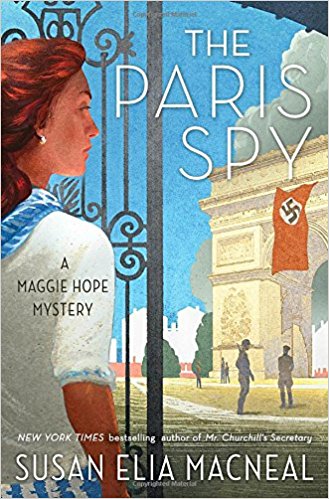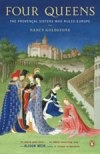 As today, January 29th, is the birthday of Thomas Paine, I thought it would be appropriate to address freedom of the press … and on the Internet. Paine was a “pamphleteer” who self-published and distributed many essays including Common Sense, which rallied the colonists to war for independence. John Adams famously proclaimed that “without the pen of the author of Common Sense, the sword of Washington would have been raised in vain.” Throughout the American Revolution, Paine continued to publish his pamphlets, collected in The Crisis, which spurred on the rebel cause.
As today, January 29th, is the birthday of Thomas Paine, I thought it would be appropriate to address freedom of the press … and on the Internet. Paine was a “pamphleteer” who self-published and distributed many essays including Common Sense, which rallied the colonists to war for independence. John Adams famously proclaimed that “without the pen of the author of Common Sense, the sword of Washington would have been raised in vain.” Throughout the American Revolution, Paine continued to publish his pamphlets, collected in The Crisis, which spurred on the rebel cause.
If he were around today, Paine would not be a politician or a pundit on TV, but a blogger. His approach was grassroots, much like that of the masses who rose up during last year’s Arab Spring, sharing their thoughts and organizing their protests via blogs, Facebook, and Twitter.
It’s pretty clear that freedom of expression on the Internet is inherently tied into freedom of the press and freedom of speech. This has been a hot topic lately, with the recent SOPA blackout and yesterday’s Twitter blackout. I do support the need to protect copyrighted material and understand the frustration of the movie companies and other copyright holders—I try to always link to the official clip, like I did with the Hobbit trailer, or use free clipart. But, there were some draconian provisions in SOPA/PIPA. Internet providers could be forced to block user IP addresses, like they do in, um, China. Also, if someone posted a link to copyrighted material, say as a comment on a blog, that blogger could be held legally responsible and thus shut down. What a relief that these bills have been sent back to the drawing board.
Saturday’s #Twitterblackout protested the announcement that Twitter will begin censoring individual tweets at the request of any country’s government. Hello China and Iran. Reports charge that this new policy is tied to a $300-billion-dollar investment made by Saudi Prince Alwaleed bin Talaj.
However, Josh Cantone at Mashable argues that Twitter’s change will actually aid political activists by highlighting the censorship enforced by these governments. He also says it will be pretty easy for users to get around the censorship. That may prove the case, but I still took part in the #TwitterBlackout. I knee-jerk react against anything that looks to, in any way, limit our freedom of the press. Ok, it was kind of silly, everyone tweeting about how we weren’t tweeting. But it sent a message. Also, the AP reported that “many of the tweets calling for a boycott of Twitter on Saturday—using the hashtag #TwitterBlackout—came from the Middle East.” So how could I not show solidarity with people who are fighting for the freedoms that we in the US sometimes take for granted?
Also worrisome is the concern that Twitter will begin to kowtow to corporations, who are already sending requests to block specific tweeters and tweets. Check out more than 4000 such corporate cease-and-desist orders.
Whatever you think about Occupy Wall Street, it was pretty scary and Orwellian that such massive civilian protests (with so many arrests!) were not reported by any major media outlet for nearly a month. The only reporting or coverage was online. I was reading the Hunger Games at the time, and it reminded me of the whispered, and covered-up, rebellions in Panem. Chilling. One could almost argue that keeping protests out of the media is as powerful, or more so, than actually suppressing them. After all, it was Glasnost that brought down the Soviet Union, just as social media fueled the Arab Awakening. Information is empowering. Without freedom to exchange information, how can we monitor and protect our other constitutional rights? The Supreme Court recently ruled that corporations have the same rights as individuals. I’m a capitalist, but this is deeply unnerving.
It’s not just political barriers that are being broken down by online dialogue. The Economist reports that bloggers have improved and expanded “the global conversation about economics.” The blogosphere has spotlighted economic theories and ideas that have been largely ignored by academic circles, “advancing bold solutions to America’s economic funk and Europe’s self-inflicted crisis.”
So going forward, I hope we’ll continue to be wary of attempts to regulate or circumscribe voices on the Internet. As Paine said, “such is the irresistible nature of truth, that all it asks, and all it wants is the liberty of appearing.”
Pampleteer Thomas Paine Would Be A Blogger
The New Yorker: Was Thomas Paine Too Much of a Free-Thinker?
Twitter’s New Censorhip Plan Rouses Global Furor
Twitter Blackout: Taking a Stand in Solidarity
Computer World: The Real Reasons Why SOPA/PIPA are Real Bad
The Guardian: Stop SOPA or the Web Really Will Go Dark Says Wikipedia Founder Jimmy Wales










